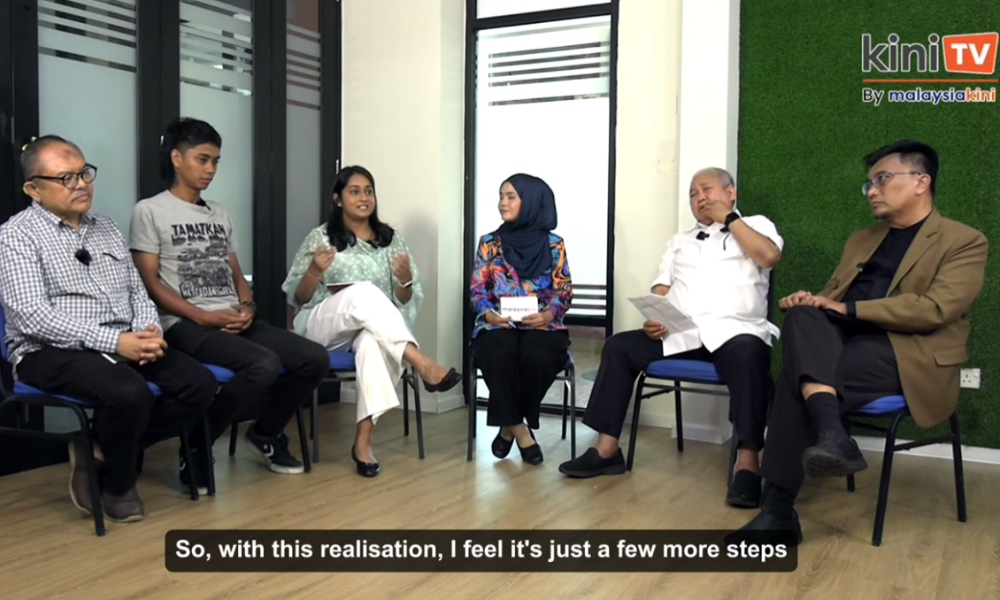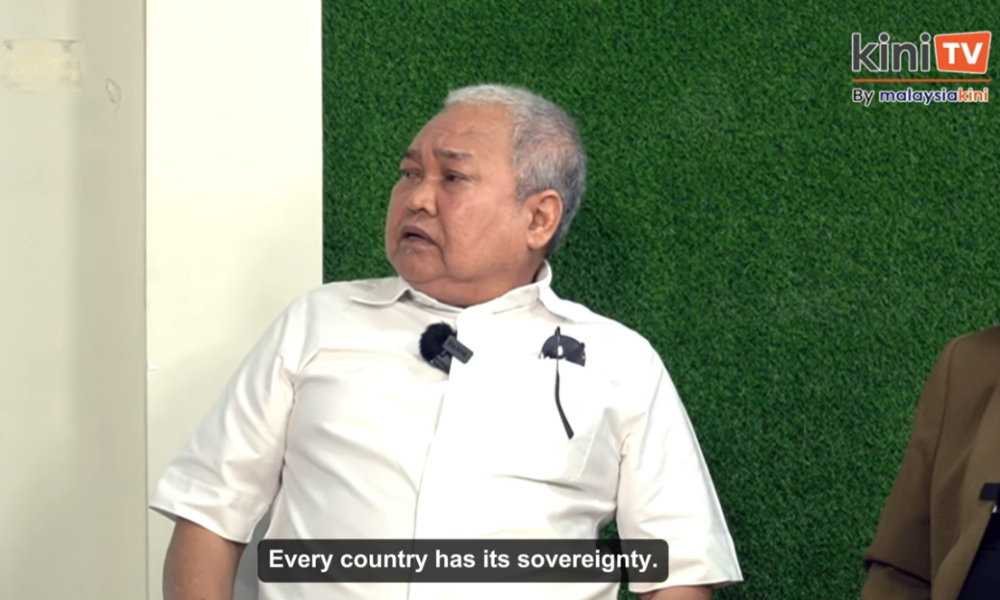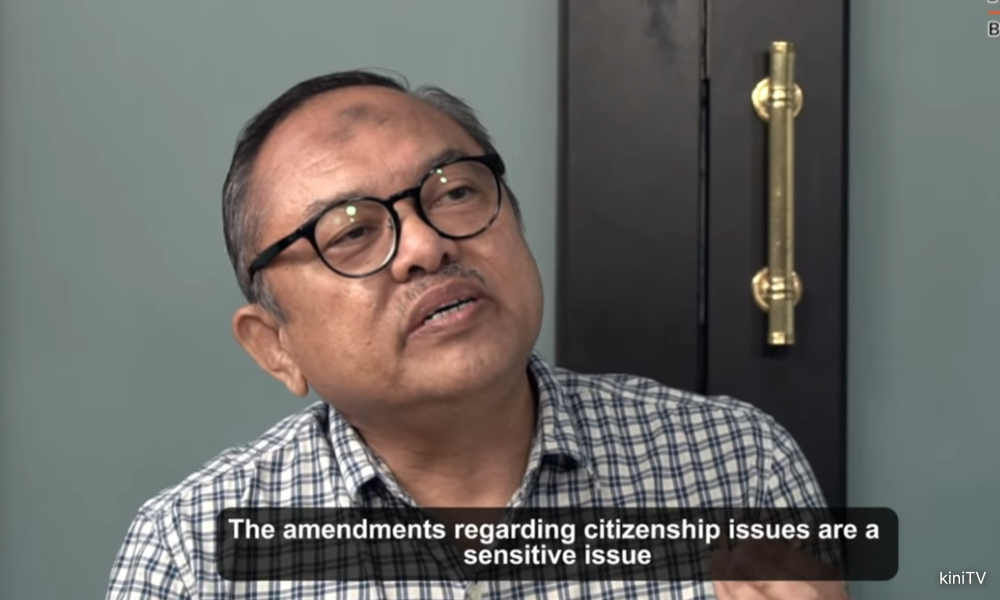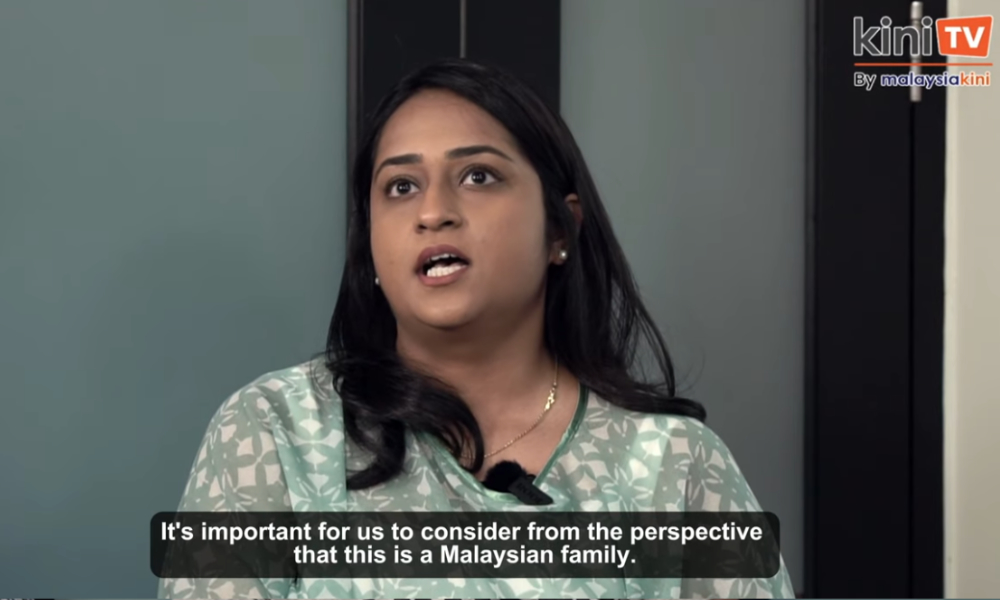Stateless individuals born in Malaysia and struggling for their citizenship rights have not infringed on the rights of others in the country, said activist Wong Kueng Hui.
Speaking as one of five featured panellists in the first episode of KiniTV’s “Lapang Dada” talk show, Wong (above), a former stateless person, said this was based on his 16-year struggle that ended last year after he was finally granted citizenship.

“I want to emphasise once again. We are talking about Malaysian children without citizenship. It’s not about Bangladeshis, Rohingyas, Filipinos, or Indonesians. That’s another story.
“I’m also curious. Have I taken away anyone’s rights?
“Because I’m a former stateless person and now have citizenship. I want to ask Malaysian citizens who have held ICs for a long time,” said Wong, 28, who was born in Sabah.
Ibrahim: Don’t set the wrong precedent
Wong said this in response to Parti Bumiputera Perkasa Malaysia (Putra) president Ibrahim Ali’s argument that the easing of citizenship laws for “stateless people” in Malaysia could potentially open a dangerous “floodgate”.
“I completely disagree that we need to ease (the process) for stateless people with children (born here). So they can become Malaysian citizens.

“This will lead to floodgates [...] and our country will become a ‘dumping ground’,” said the veteran right-wing politician.
As a former Pasir Mas MP, Ibrahim admitted that his constituency had a large number of local women with husbands from across the border in Thailand or vice versa and their children faced citizenship issues.
He added that considerations the government must take include the need to fulfil all the rights of a Malaysian citizen, such as access to education and health, and he did not wish for a precedent to be set in which citizenship was easily obtainable for those with no legitimate claim.
“I prefer to talk about Orang Asli children, including (the natives) in Sabah, who don’t have access to education,” he said.
Another panellist, a constitutional expert from Taylor's University Nik Ahmad Kamal Nik Mahmood, said the right to education is universal and the government must fulfil this right.

“In the context of Malaysia, we see that the law clearly requires individuals to enrol in school with complete documents.
“With an IC, with a birth certificate, and so on. So, in this context, there needs to be a clear policy,” he said.
Malaysian Alliance of Civil Society Organisations chairperson Lukman Sheriff Alias said while he agreed on the need to uphold basic human rights in education and health, the government can impose a condition against free access for stateless people.
“Ultimately, after two or three generations without education, socio-economic problems would arise in Malaysia.
“That’s why I feel we need to provide education and healthcare too, but not for free - this is what I disagree with,” he said.
Many unfairly denied opportunities
Wong, who reflected on his own experiences growing up in Sabah among generations of stateless people, said there are many local talents denied access to opportunities due to their citizenship status.
“Let’s give an example in the sports sector, especially in football now. We are taking players from outside and naturally granting them citizenship.
“I’ve seen a lot in Sabah because I grew up there. Many people can play sports and are capable of representing schools and districts, but they can’t because they don’t have an identity card.
“So if they are given the opportunity, given citizenship, they can access these opportunities,” he said.
Another panellist, Development of Human Resources for Rural Areas (DHRRA) Malaysia director for social protection Maalini Ramalo, also countered Ibrahim’s arguments, emphasising that the central issue at hand is statelessness among Malaysians.

“What was mentioned about the floodgate earlier, I feel this isn’t really a floodgate issue.
“They (stateless people) don’t come from anywhere (else). They are already in our country. Why are they in our country? Because, as was mentioned as well, border marriages,” she said.
Maalini stressed that while cross-border marriages are common, there remains a lack of awareness on the importance of registering their marriages in Malaysia, or similarly in cases where children were born out of wedlock.
“We might feel that this (failure to register) is their fault and all those things.
“But actually, in this world, there are only two countries that don’t allow men to give citizenship to children born out of wedlock,” she said.
Towards the end of the hour-long episode, Ibrahim, who claimed his views have often been “misunderstood”, urged the government to table a white paper on the proposed constitutional amendments on citizenship rights, first tabled in March and expected to be debated in the upcoming Dewan Rakyat session at the end of this month.
The first video in the “Lapang Dada” talk show series was released on Sunday (June 16) on KiniTV’s official YouTube page. - Mkini




No comments:
Post a Comment
Note: Only a member of this blog may post a comment.